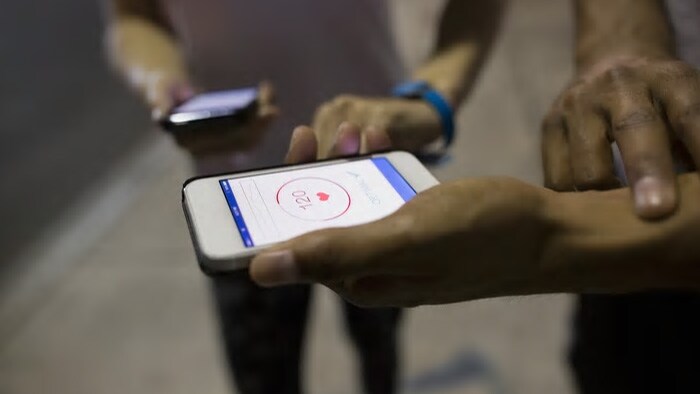Can mobile phones and gamification improve ASEAN’s health?


Nov 29, 2019 - reading time 9 mins
Ivy Lai is the Country Manager for Philips Singapore. She is responsible for overseeing Philips Singapore’s transition strategy from a consumer electronics company to a leader in health technology.

Rapid urbanization and the advent of smartphones is driving a shift in how Southeast Asians’ manage their health. Today, increasing digital and mobile uptake is empowering consumers to track and manage their health, making the days of solely obtaining health information through our doctors a distant history. Gamification is at the cusp of this transformation, holding the promise to unlock the potential to motivate healthier lifestyles and tackle the rising burden of disease.

A new contender has emerged in the mobile economy – Southeast Asians are outpacing the Chinese in embracing the mobile economy, with an increasing number of consumers using smartphones to do their banking, to shop and hail rides in this region1. This is due to rising income levels that has sparked both greater discretionary spending and increased smartphone adoption. Along with rapid urbanization and rising income, an increasingly sedentary lifestyle has contributed to a greater incidence of chronic diseases in Southeast Asia, even as life expectancy increases. According to the International Diabetes Federation, an estimated 82 million adults aged 20 -79 years are living with diabetes in Southeast Asia, with close to half (48.8 percent) of all adults with diabetes living in urban areas2.
A fundamental shift to proactive prevention rather than treatment of illnesses is needed, with high levels of mobile usage paving the way for apps to play a pivotal role in enabling consumers to be more empowered to manage their own health. Along with this, gamification can provide the motivation for healthy living and preventive healthcare.
Gamification to win the health race
With mobile devices as a platform, healthcare expertise can be delivered in a meaningful, personalized way – reengineering the model of care. Mobile health apps can help consumers be more empowered with information on their own health, and reciprocal data sharing with their healthcare practitioners can enhance engagement and experiences. A Deloitte study, however, found that developing engagement strategies to encourage proactive sharing is still a challenge, and some researchers are trying to understand what motivates individual patients before developing tailored solutions that incorporate individualized goals3. Gamification is one way to prompt consumers to regularly monitor health data, so that a complete overview of a patient’s health journey across the health continuum is captured not only for their benefit, but for their healthcare practitioner to have full context.
Cultivating lifelong habits
Consumers can soon expect artificial intelligence to be embedded in common household products that can even serve as personal health assistants. When paired with mobile apps, these smart household appliances turn into powerful tools that empower individuals to achieve their health goals. For example, smart kitchen appliances such as connected blenders have the ability to analyze the nutrition of ingredients placed within it and suggest tips and healthy recipes tailored for the individual. Based on the user’s health goal, the mobile app can also suggest healthier ingredient alternatives. Parents who are familiar with the daily challenge of getting children to brush their teeth will be glad that through gamification, children can now be motivated to use an electric toothbrush to improve their brushing habits. A connected app can turn the toothbrush into a controller for a game that gives children points for brushing all four quadrants of their teeth for the recommended two minutes. This simple yet vital activity has been proven to be the foundation for healthy teeth during the first few years of life. UX designers found that gamification’s habit-forming potential could play a crucial role in engaging people to develop healthier lifestyle habits, particularly for those with chronic diseases4. Through gamification, diabetic consumers could be motivated to exercise more regularly and eat healthier meals that promote more stable insulin levels through a mobile health app that tracks and rewards their progress. The National Center for Biotechnology Information also found that apps with self-regulatory behavior change techniques such as goal setting, self-monitoring, and social support were associated with better outcomes5.
Cultivating lifelong habits
Findings from Philips' Annual Future Health Index 2019 reflect that two-fifths of healthcare practitioners recommend the use of digital health technology to track key indicators of health. However, only one-third of the general population who use digital health technology or mobile health apps to track indicators regularly share data with their healthcare professionals. This suggests a need to encourage consumers to cultivate healthy lifestyles and embark on reciprocal sharing, achievable by leveraging gamification and connected devices – 33 percent would be more likely to use digital health technology if it was easier to share data with their healthcare professionals. There needs to be a greater effort to encourage individuals to collect and share this data, in order for them to learn more about their health, act based on this information, and understand how to interpret the data correctly for self-management. In doing so, we are enabling them to fully leverage digital health technology and mobile apps – and enjoy the fun mobile app gamification brings – for healthy living and preventive care, before illnesses escalate.








